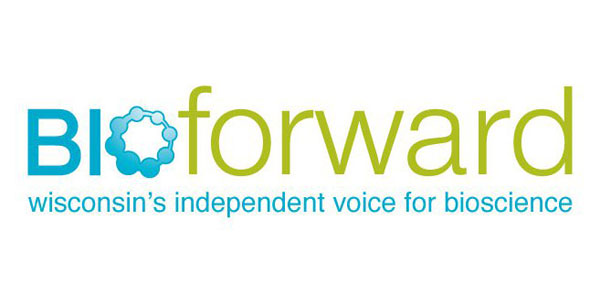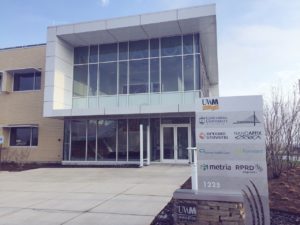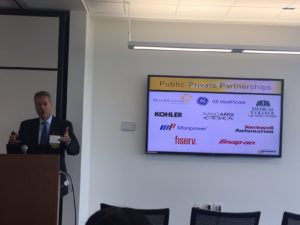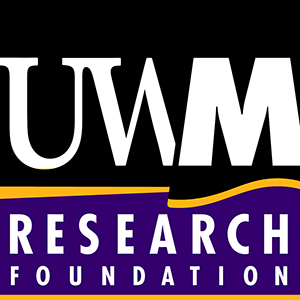
Wisconsin State Budget Analysis: Impact on UW-Milwaukee and Biohealth Industry – BioForward Speaker Series Recap
After a successful first event from UW-Madison and Accuray, BioForward’s speaker series on the importance of public university research visited the UWM Innovation Accelerator last Thursday for the second event, featuring the University of Wisconsin-Milwaukee. Lisa Johnson, CEO of BioForward, kicked off the event with BioForward updates including highlighting Wisconsin’s strengths as a state, beginning BioForward’s new membership year, and protecting research in the state through advocacy efforts.

UW-Milwaukee’s Commitment to the Wisconsin Idea
Mark Mone, Chancellor of UW-Milwaukee, welcomed attendees and began the event with insight into UW-Milwaukee and its impact on the state. With the most diverse networks of students in the UW system, UWM offers a talented and well-rounded student body, most of which stay in Wisconsin to work after they graduate. Mone stressed that not only is talent a main component of the university’s impact on the state economy and biohealth industry, but research is just as critical when considering funding. Research provides value to a variety of organizations, from startups to large life science companies, and ultimately drives the growth of our industry in the state.
Additionally, UWM has taken their own initiative to support research, developing their catalyst grant award program dedicated to supporting research that shows promise of impacting the local economy through commercialization. From this program alone, nine startups have launched and 21 patents have been issued. Along with this initiative, the university has started the Milwaukee Institute for Drug Discovery which advances research and development of new drugs from collaborative research between UW-Milwaukee, industry, and Wisconsin academic institutions. The opening of the Kenwood Interdisciplinary Research Complex in 2015, which was the biggest project on the campus in 20 years, emphasizes the university’s commitment to scientific research.
A Look at the Proposed State Budget
Mone walked attendees through the key components of the proposed budget including $105 million for the UW System, increased metrics and accountability, and an 1% Salary increase for faculty. Although a proposed increase in the budget is a positive direction, attendees were reminded that the state has seen a decline in state budget support over the past decade. Mone encouraged attendees to advocate for reinvestment in the university system for this upcoming budget, as well as future budgets. With growing needs in the health sciences workforce, now is the time for the state to allocate these dollars to the university. Falling behind on compensation for its faculty, the university also needs to funding to remain competitive in retaining and attracting the talented faculty that makes the university exceptional.

Advocating for Reinvestment in the UW System
The University of Wisconsin – Milwaukee has been advocating for reinvestment through meeting with legislators, holding nation-wide alumni events, and engaging stakeholders in advocacy efforts for the university. Mone encouraged guests to become engaged by contacting elected officials, writing a letter to an editor, and sharing their personal and professional stories with legislators and on social media.
The event was followed by exclusive tours of the UWM Innovation Accelerator, featuring companies with roots in UWM research. With each company, the impact of research funding in the state came to life as attendees talked to researchers and experienced the technologies first-hand. Ready to advocate for UW research? Learn more here: http://uwm.edu/budget/ To learn more about upcoming Wisconsin Biohealth events, click here.
To view Chancellor Mone’s presentation, click here. Read the original article here.
